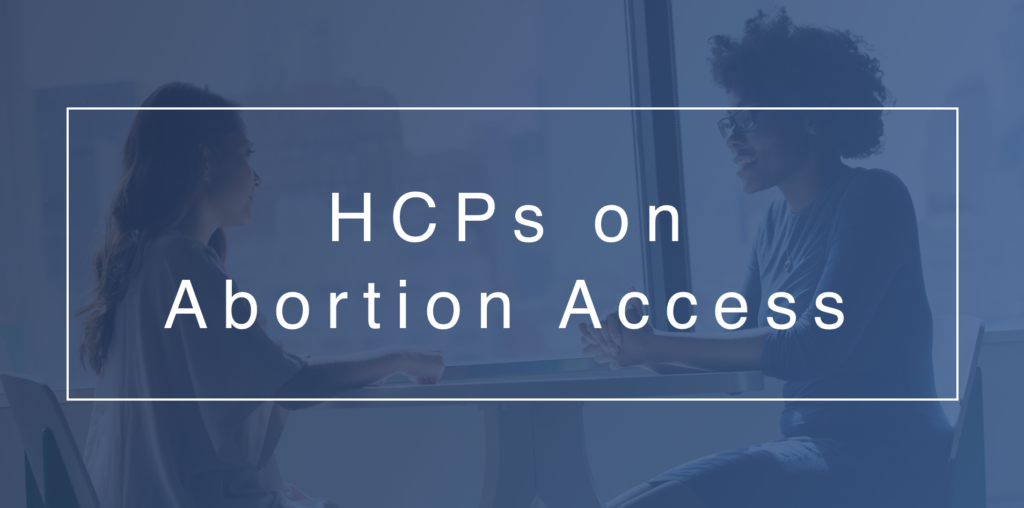
With significant changes being made to abortion access in the U.S., we asked healthcare professionals in the Figure 1 community — both before and after the overturning of Roe v. Wade — for their thoughts.
Here’s what more than 700 healthcare professionals had to say.
Roe v. Wade
Prior to the ruling, the majority of respondents (81%) felt Roe v. Wade in the U.S. should be upheld.
Impact on Reproductive Health
When asked if they feel the official overturn of Roe v. Wade will negatively impact reproductive health in the U.S., 79% responded that yes, this change in abortion access will have a negative impact on reproductive health.
Abortion as Healthcare
Regarding abortion as healthcare, 84% of surveyed healthcare professionals say that abortion is healthcare.
“Of course it is a health issue. Reproductive health is critical for a society. To deny that demonstrates an appalling degree of ignorance and bias,” replied one internal medicine physician.
And a registered nurse shared, “This is a healthcare issue! It is a medical procedure affecting a woman. How is it not ‘healthcare’?”
The Impact on Healthcare Providers
We also asked the community if they felt the final decision would negatively impact their ability to do their work. At 80%, the significant majority say that yes, this decision will negatively impact their work.
One healthcare professional shared what they are hearing from colleagues in states with trigger laws, “… I have heard from friends that even in the setting of rape, no Plan B can be prescribed. And ectopic pregnancies cannot be treated with methotrexate and need ethics consults. This is directly from OB physicians.”
The Impact in Individual States
Following the final decision, 53% of respondents expect their state to ban or restrict abortion access.
One healthcare provider in Wisconsin shared, “… we have a law from the 1800s that will not go into effect banning abortion. The attorney general states he won’t prosecute cases, but I don’t know what will happen after the next election …”
And a healthcare provider in Minnesota noted, “… I expect a lot of abortion laws will not change. If anything, I think people are going to come to this state for care.”
Concerns from Patients
More than half (66%) of respondents say they are hearing concerns from patients and the impact on their health since the final ruling has been announced.
Counseling Patients
As for how they will counsel someone seeking to terminate a pregnancy — regardless of reason — if their state bans abortion, responses included:
“I would refer them to their family practice physician or OBGYN, if they have not yet been evaluated. Just because you have a positive home pregnancy test does not mean you’re pregnant.”
– Registered Nurse
“I would refer them to one of the organizations that assist with travel and accommodations to a state with access to a safe legal abortion.”
– Medical Educator
An OBGYN’s Take on Abortion Access
Figure 1 also spoke with Dr. Diane Horvath, an obstetrician-gynecologist who has spent her career advocating for abortion access. She is the medical director for a group of women’s clinics providing comprehensive gynecology services.
Some legislation has been based on “fetal heartbeat,” but fetal pole cardiac activity is the accurate description. Basing legislation on a “heartbeat” is an appeal to emotion, not science, says Dr. Horvath. At six weeks, a fully formed heart has not yet developed.
“We can grow cardiac cells in a culture and watch the pulsations of electricity at six weeks. They beat because it’s just electrical pulsation. We can see that pulsation in a dish. This idea that this is a marker in pregnancy is an appeal to emotion, it’s not a timepoint in fetal development which something magical happens.”
And Dr. Horvath feels lucky to practice in the state of Maryland, which she says has “a good record of protecting evidence-based healthcare.”
“We are a haven state for the states around us that have limited access. I’m able to provide care to my patients, but it should be like that everywhere.”
She says any religious or moral refusal that affects the basic elements of healthcare — whether contraception, abortion, or couples wanting to conceive — harms patients and the health of people who need our care.
“Whether it’s abortion or care for LGTBQ people, or people of various races and ethnicities, it’s not about us and our feelings. It’s about the care of our patients and their needs. It’s important that as a healthcare provider, I center the needs of my own patients before any personal beliefs.”
Published May 16, 2022; updated June 27, 2022
Listen to Season 7 of the DDx Podcast on Abortion
In this season of the top-rated DDx podcast, you’ll meet three obstetricians who perform an essential medical procedure: abortion. Learn about their patients and how abortion affects both physical and mental health. From a molar pregnancy to fetal chromosomal abnormalities, these stories illustrate the life-saving impact of abortion, and its necessity within healthcare.


